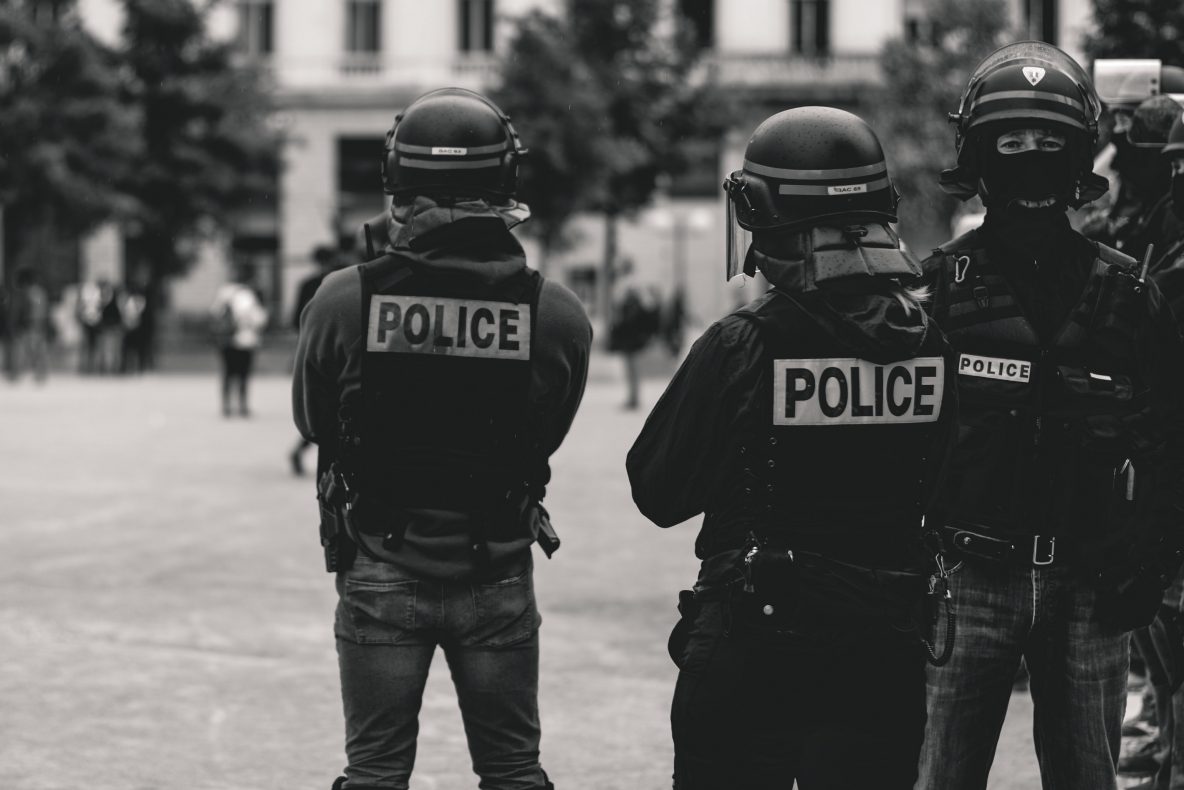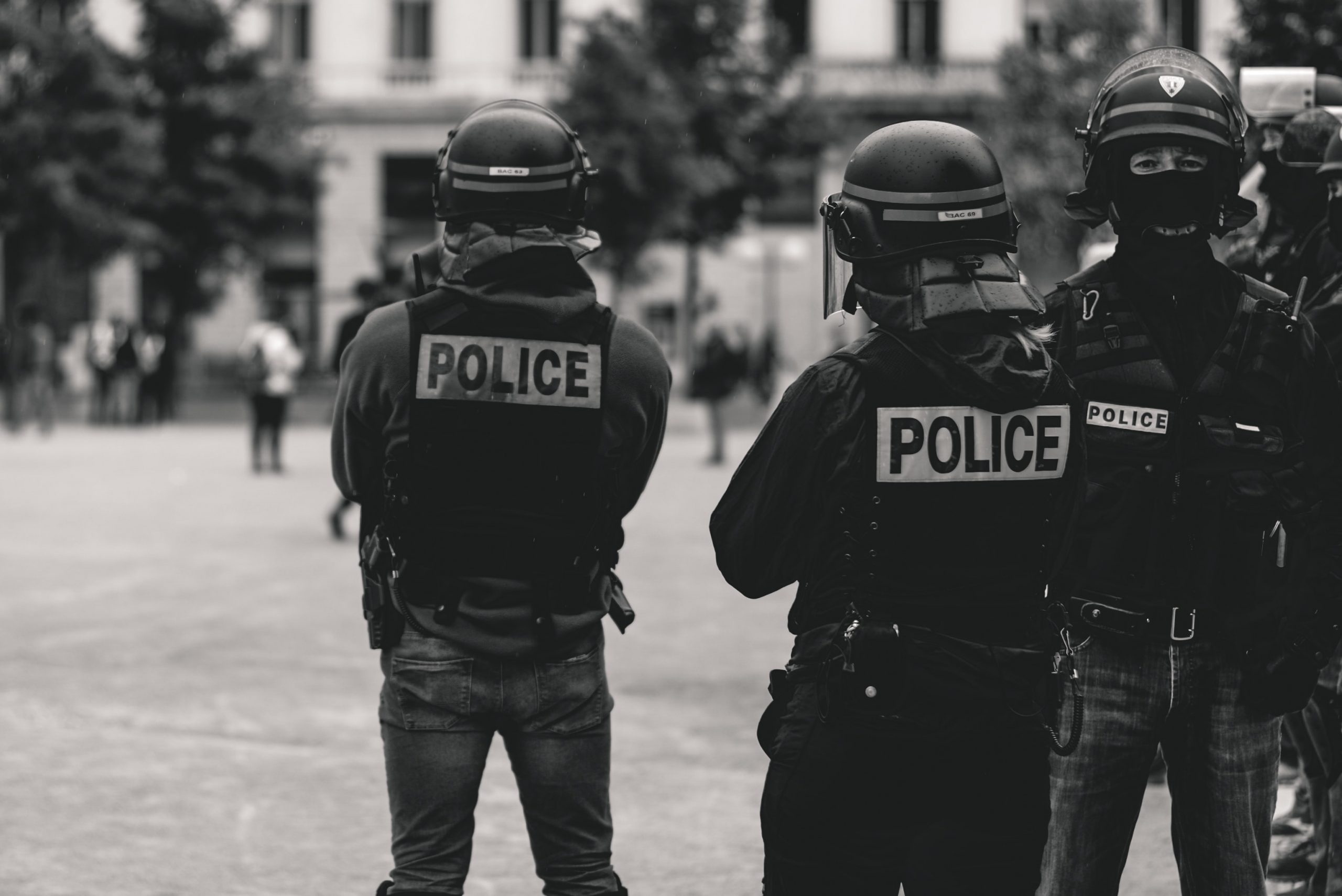POlicing in a pandemic: the perfect excuse?
By Lily Owen / 22 March 2021
TW: Police Brutality, Violence, Violence against women
The abduction and murder of Sarah Everard has resonated with many women, unfortunately reiterating that fears about walking alone at night are justified. What we are failing to understand is why, at a vigil to remember her death on Clapham Common, the Metropolitan Police manhandled and physically removed protesters in the name of upholding Coronavirus restrictions.
It is an ‘us versus them’ mentality, even more so this week with Kill the Bill protests in Bristol returning this violent behaviour back on the police. Immediately condemned as an example of “thuggery and disorder” by Priti Patel – whereas scenes at Clapham were merely “upsetting” –, Shadow Home Secretary Nick Thomas-Symonds also voiced his disgust with the view that “there is no excuse whatsoever for this violence.”
Throughout this pandemic, we have witnessed the impact of a global ‘blame culture’, such as wrongly attributing COVID-19 spikes to student’s ‘selfish’ misbehaviour and their generalised ‘sense of ignorance’. But perhaps what is now also becoming clear are other, contemporary means of absolving state responsibility in the form of exploiting a new sense of ‘excuse culture’. No, there is no excuse for violence, neither from rioters in Bristol, nor police in Clapham and yet, we are still refused an apology from the latter. The force’s deputy commissioner, Sir Stephen House told the London assembly that whilst people felt upset, he simply “can’t apologise for my officers”. Where we should see an obvious violation of human rights and an abuse of police power, through the lens of a global pandemic, we are attempting to be shown a necessary means of establishment escalation of power for our own protection.
Yes, COVID-19 has let us all slacken the rope. An unusual year, to say the least, everyone has adjusted to the idea that not everything can be what you make it. Big hopes for new jobs, university, travel have not gone to plan and when a future employer asks you to explain this period of inactivity, “the issue of a hiring freeze”, “I was kept on furlough”, “I chose to focus on pursuing participation in online courses”, or “I needed to take a break to prioritise my mental health” will be perfectly respectable answers. What is not okay, however, is using the pandemic to excuse behaviours that were already there. Where lack of jobs, overwhelmed parenting, and increased mental health concerns can be directly linked to a rise in lockdown measures, unjust policing is not an inevitable consequence of this pandemic.
Excessive force to implement lockdowns and curfews are receiving false justification in the name of preserving public health. Returning to the scenes at Clapham Common, Assistant Commissioner Helen Ball explained how “Hundreds of people were packed tightly together, posing a very real risk of easily transmitting COVID-19.” Although this is understandable (despite evidence showing that outdoor, masked protests are not considered super-spreader events), I am sure that adding a large team of officers into the mix did not reduce the infection risk. Another justification was the threat of violence: glass could be heard breaking and twenty-six frontline officers claimed they were assaulted, punched, kicked and spat at. But, ironically, pictures obtained showing these instances demonstrate the perpetrators were men, not the female protesters present. In further aims to detract from police behaviour, calls from the Victim’s Commissioner, Dame Vera Baird have been made to “return to the issue”. Okay, great, right? Are (male) police officers pressing women to the ground not encapsulated by this? Violence against women sits under the umbrella of police brutality: we are very much focused on the right issue in addressing this event.
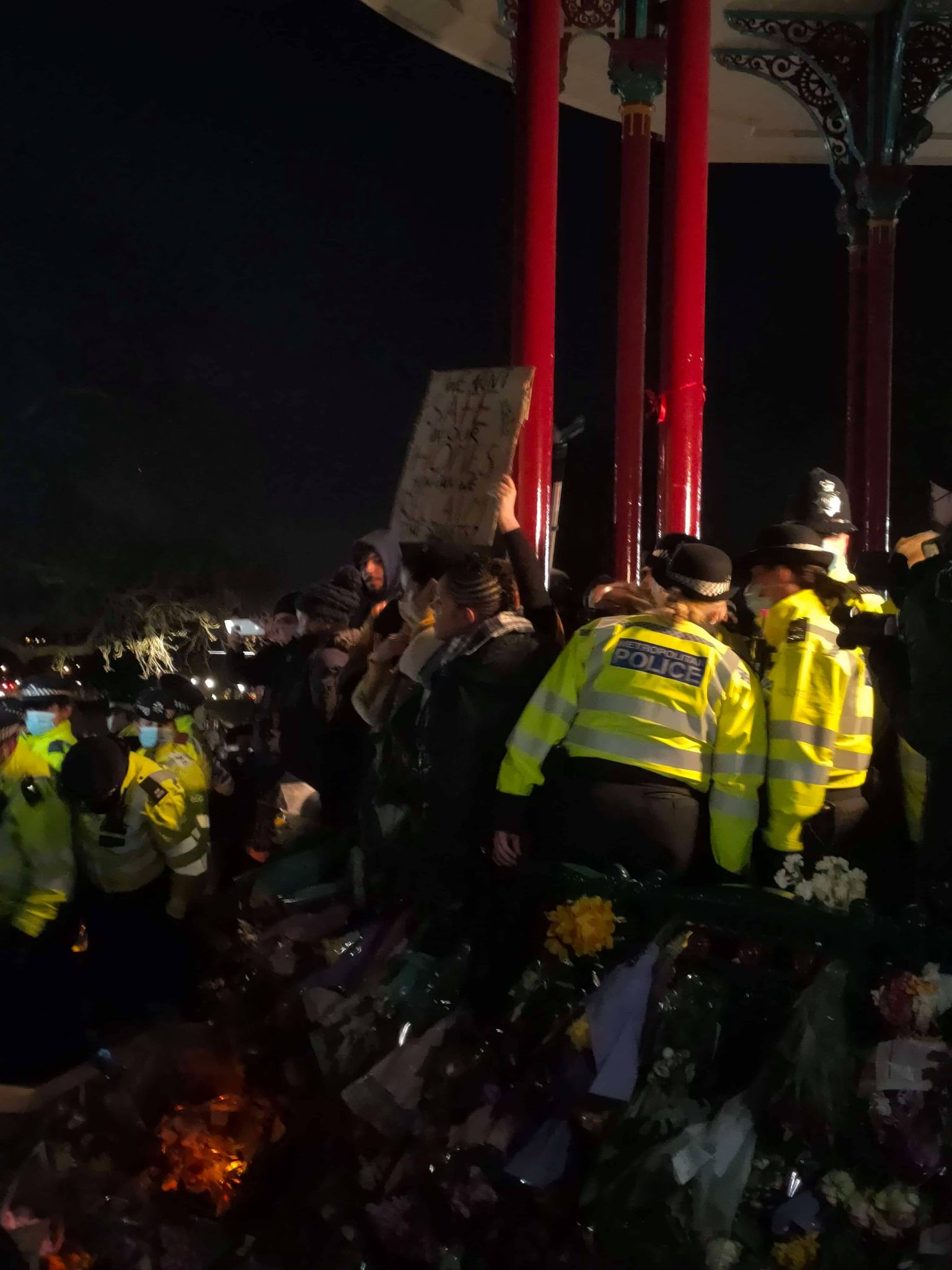
Photo by Jo Kamal
The Black Lives Matter movement over this last year has been integral in bringing people’s attention to the systemic racism within the UK police force.
Whilst Sarah Everard’s death has resonated with all women, it is important to acknowledge that this is not the beginning, nowhere near it, for women of colour. In 2012, Sarah Reed was yanked by the hair, dragged across the floor, pressed down on her neck, and repeatedly punched in the head by Met constable, James Kiddie. Reed is one of many – Julian Cole, Mark Duggan, Dalian Atkinson, Annabella Landsberg, Cynthia Jarrett, Joy Gardner – there are too many to name and not enough officers held accountable. Their cases did not require the excuse of preserving public health because, sadly, the extent of unconscious bias in this country is enough to sweep it under the rug.
Instead of seeing violence for violence, the media and public defenders seek excuse as there must be a good reason, surely? But, when is there ever? There certainly appeared no good reason for the Hong Kong police to physically restrain violent rioters in 2019, at least the condemnation from the UK would suggest. If that was wrong in the eyes of the UK establishment, then this case of the Met’s forceful dispersion of peaceful protest is being painted as more appropriate than what was often taking self-defence against radical action. The world was horrified at a US officer pressing his knee into George Floyd’s neck in 2020, but how does that sit knowing that the UK officer who pressed into Reed’s neck just six years earlier was only sentenced to community service by our very own justice system? It is all too easy to see and criticise the actions of other nations, but on what grounds can we claim that sense of righteousness?
There is a twisted and misleading argument that increased police powers across the globe are a protective measure, with Coronavirus now becoming the ultimate enemy against which we must be protected at ‘all costs’. Angolan police shot a teenage boy in the face for allegedly breaking curfew and police in El Salvador shot a man in the legs after he went out to buy food. This is not protection, this is persecution. We like to think of ourselves as a liberal society and whilst our police are not armed as shown in Clapham, damage can very easily still be done.
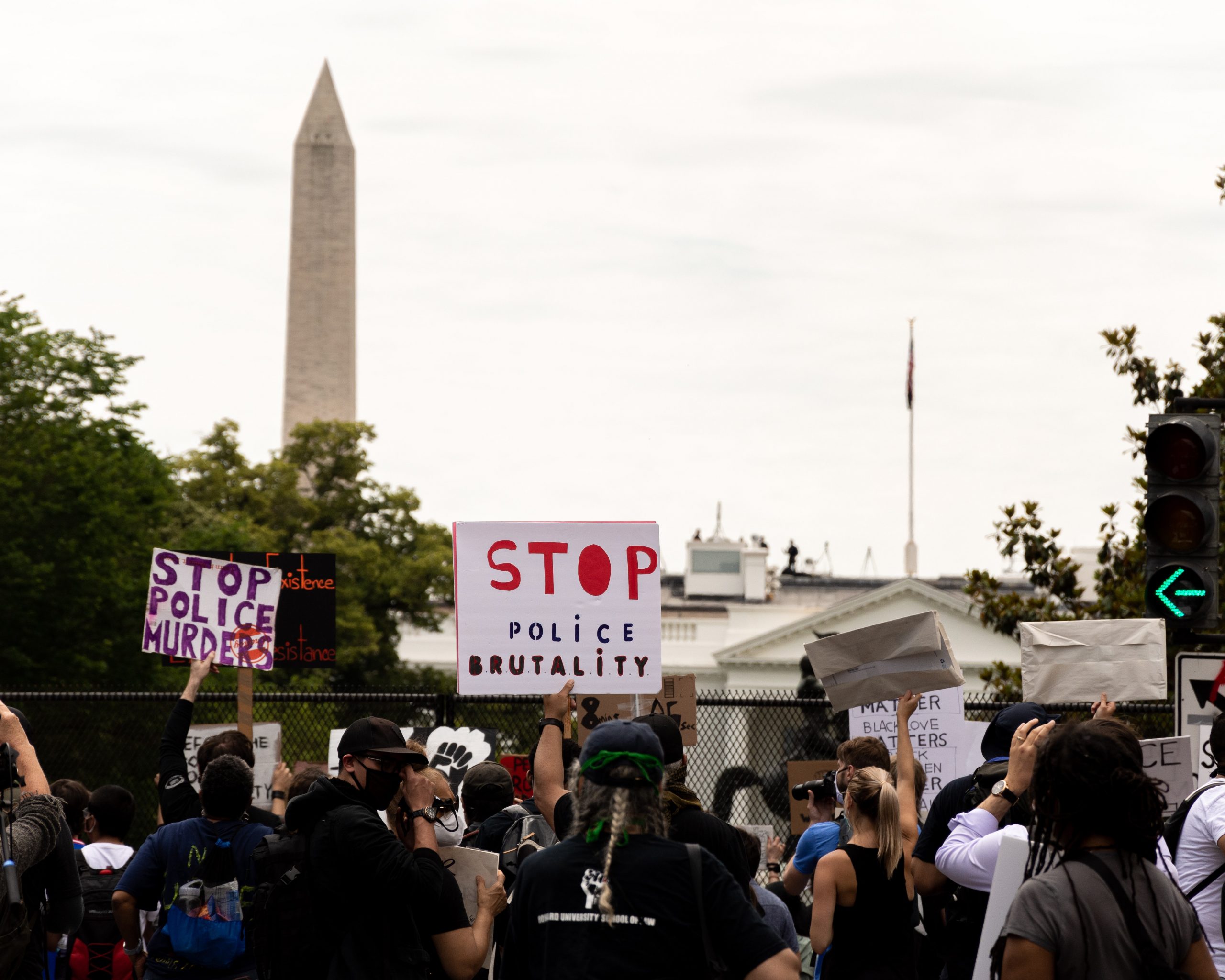
Photo by Koshu Kunii on Unsplash
Masks have been a big topic of conversation this last year, but events like these have allowed us to see through some of the longest-reigning facades of some of the biggest institutions.
When faced with the publicised reality of police brutality, what happens? Not an apology, but a “lessons learned review”. You only have to revisit the names mentioned above to know that this is a lesson that could, and should have been learned a long time ago. Apparently, brutality in the time of COVID-19 is a different breed to the brutality experienced in past times. With learning comes beneficial change and this is something we are yet to see.
The government has now ruled that from the autumn, misogyny will be recorded as a hate crime by police in England and Wales. Maybe this is the start of some change. Currently, eight in ten women have been harassed in public, but 90% do not report it because they do not believe that it will be taken seriously. With this move aiming to encourage and reassure women that they will be listened to, in light of recent events, it would be very naïve to believe that this is a quick fix solution to regaining female trust in the system. Extremely naïve, in fact, when also noting that at the same time, further democratic rights are being stripped in the form of freedom to protest. Parliament is debating the Police, Crime, Sentencing and Courts Bill to extend the rules for marches to static gatherings, which fuelled behaviours in Bristol. This includes imposing start and finish times, setting noise limits, and can apply to a demonstration of just one person. So you want women to come forward about their abuse, but they cannot be free to stand in solidarity with their fellow victims and publicise their pain? Where rights are being stripped to punish civilian violence, the establishment is choosing to empower our forces for very similar action.
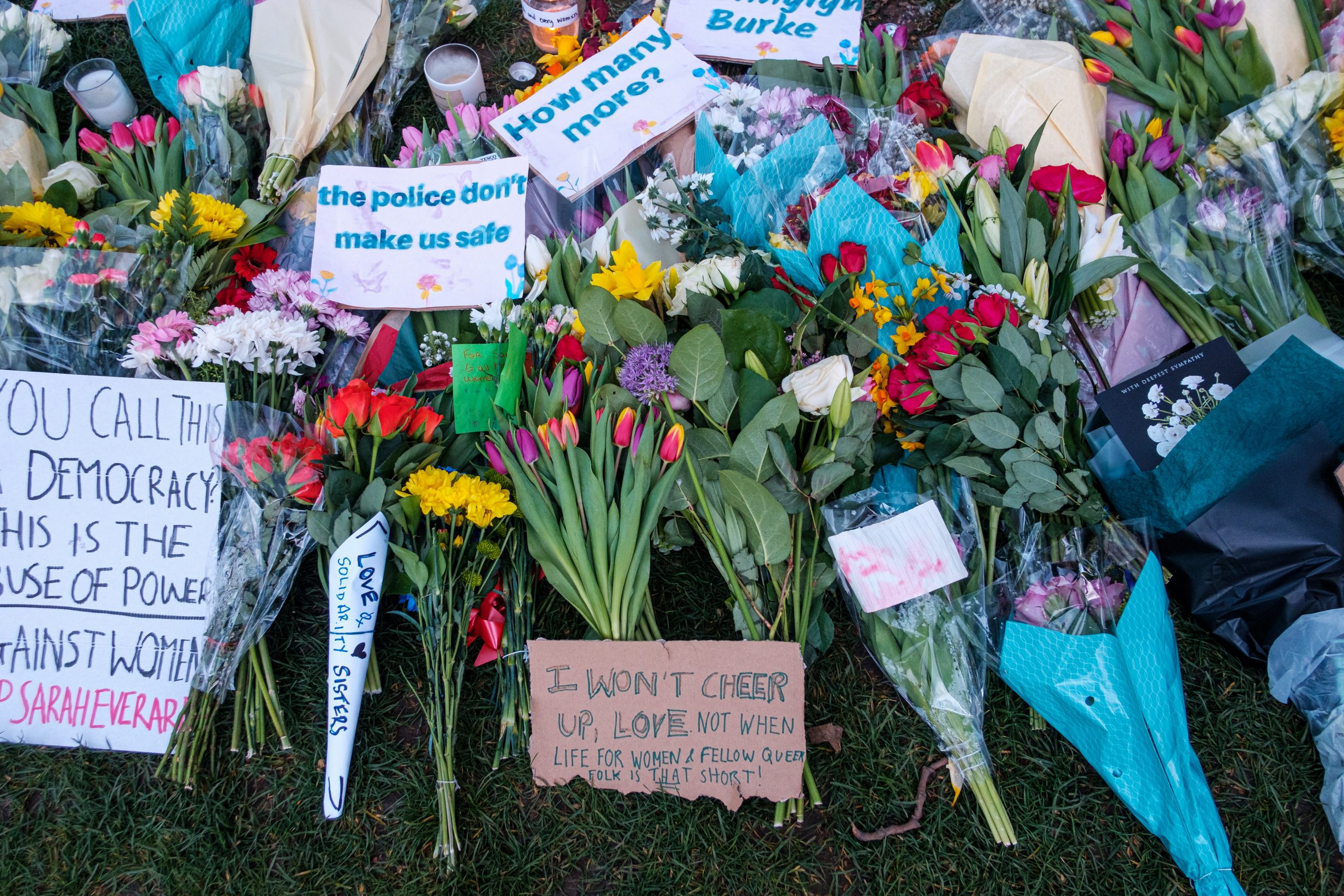
Photo by Ehimetalor Akhere Unuabona on Unsplash
At the time of the vigil in Clapham, police had conceded that people have a right to protest during the current national lockdown, admitting in the High Court that it could not impose a blanket ban. Yet, a wide range of emergency powers has been used to shut down a number of protests since January. Police were called on by the courts to work with protesters to support a safe vigil, instead, they only brought more matters to mourn. If social distancing was really the issue here, then why was a nurse who organised a socially distanced protest against low pay in the NHS issued a £10,000 fine? In Bristol, three men were arrested for squatting in an empty office building and ‘breaching COVID-19 rules’: a rather contrasting picture in terms of public safety to the thirty or so officers and a crowd of around a hundred people that they attracted outside as a result. Is this effective policing, or just a public demonstration of power for the sake of it?
So, now, we are expanding the powers of the police to cover their backs when this inevitably happens again. Next time, the law will be on their side to defend brutal interference. As parents fall behind on helping their children complete home-schooling tasks whilst taking meetings over zoom, and A-level students lower their expectations for university places given the uncertainty over exam conditions, we are only human to excuse ourselves for not getting everything perfect at the moment. This is situational. A health pandemic is not an excuse for a demonstration of police prejudice. Correct and just policing must be invariable, whatever the situation.
Words by
Share this article

